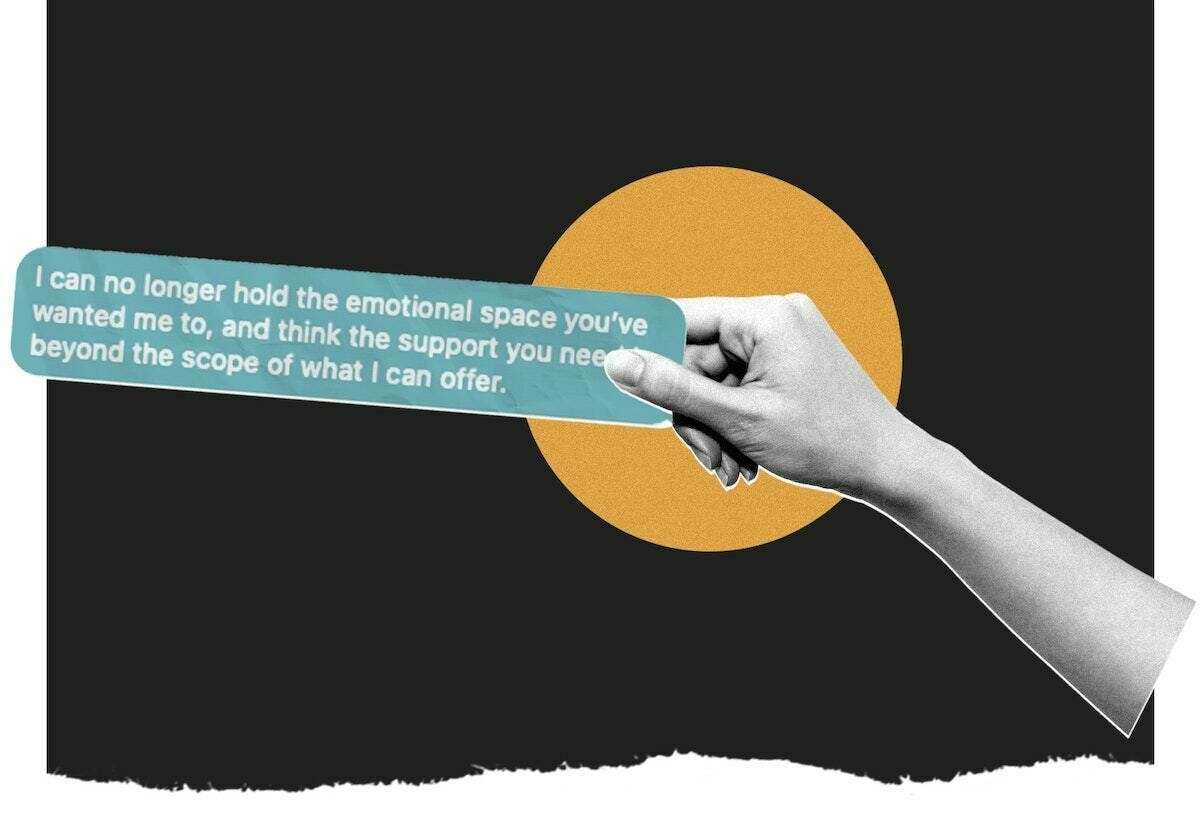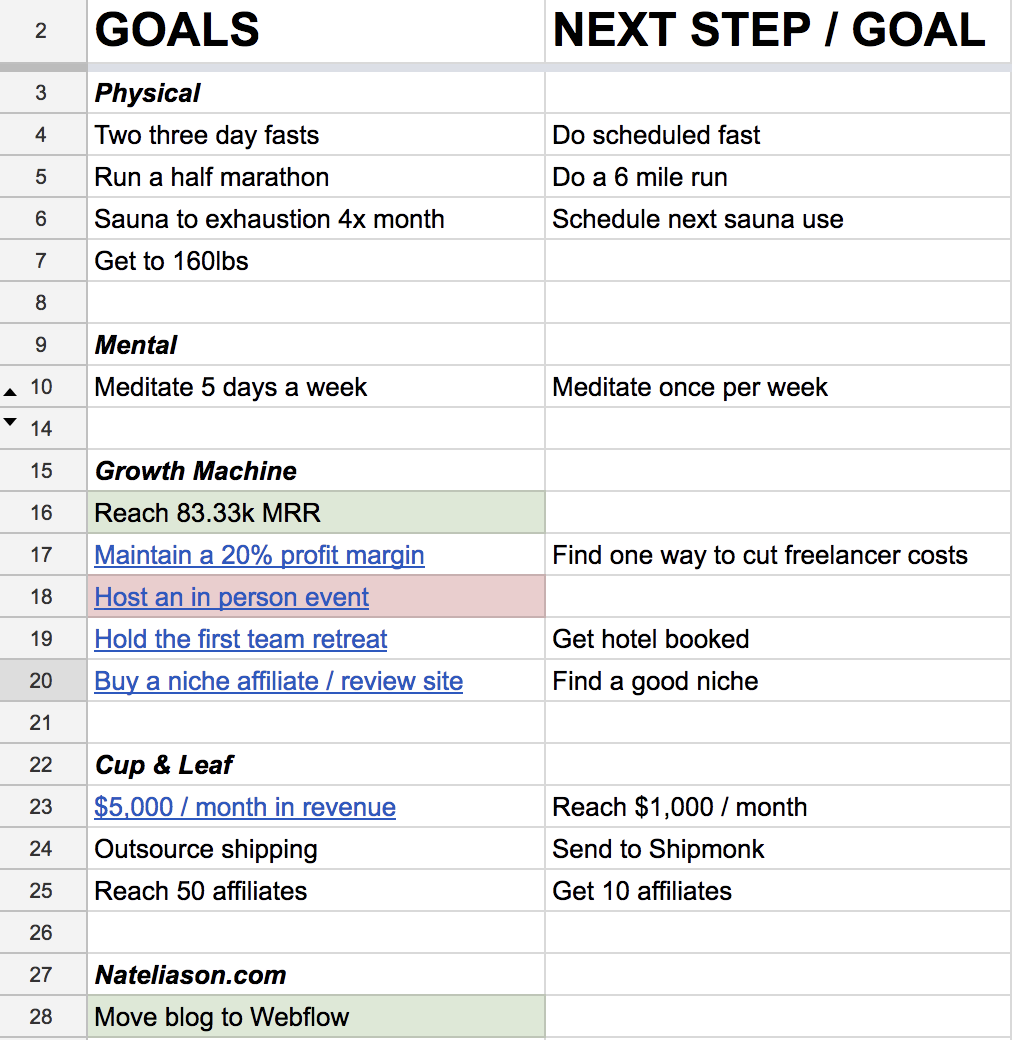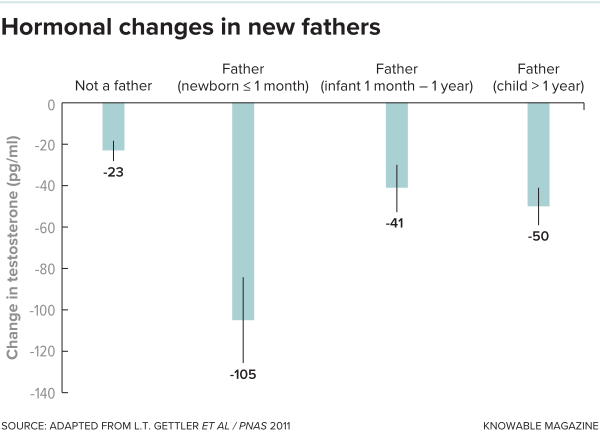Avoiding the 'Dark Triads'
Arthur C. Brooks, whose writing I always enjoy, writes on sociopaths, narcissists, and ‘Dark Triad’ personalities. These Dark Triads are characterised by narcissism, Machiavellianism, and psychopathy. They’re manipulative and harmful, and making up about 7% of the population — although interestingly significantly more of the male prison population.
Brooks talks about how to spot and avoid them in the workplace and on social media, and how to gravitate towards ‘Light Triad’ personalities instead. These embody positive traits like faith in humanity and humanism, and represent a more uplifting aspect of human nature. Thankfully, Light Triads are more common in the general population.

As far as the workplace is concerned, scholars have found that narcissists tend toward artistic, creative, and social careers; researchers also saw that Machiavellians, in particular, avoid careers that involve caring for others. Look out for Dark Triads, in other words, in professions that involve human contact, performance, and applause, but little concerned attention to other people. An obvious example might be politics; another would be show business. But the type can manifest in many careers and professions. At work, such individuals tend to exaggerate their own worth, show a distrustful attitude toward colleagues, act impulsively and irresponsibly, break rules, and lie.Source: The Sociopaths Among Us—And How to Avoid Them | The Atlantic[…]
The traits to look for are self-importance, a sense of entitlement, vanity, a victim mentality, a tendency to bend the truth or even openly lie, manipulativeness, grandiosity, a lack of remorse, and an absence of empathy. Probe for these characteristics particularly when on first dates and in job interviews. You might even want to take that test imaginatively on behalf of someone you suspect may have Triad traits and see what result you get.
Image: DALL-E 3
There are better approaches than just having no friends at work
We get articles like this because we live in a world inescapably tied to neoliberalism and hierarchical ways of organising work. I’m sure the advice to “not make friends at work” is stellar survival advice in a large company, but it’s not the best way to ensure human flourishing.
I’ve definitely been burned by relationships at work, especially earlier in my career when managers use the ‘family’ metaphor. Thankfully, there’s a better way: own your own business with your friends! Then you can bring your full self to work, which is much like having your cake and eating it, too.

Real friends are people you can be yourself around and with whom you can show up being who you truly are—no editing needed. They are folks with whom you have developed a deep relationship over time that is mutual and flows in two ways. You are there for them and they are there for you. There is trust built.Source: Why You Shouldn’t Make Friends at Work | Psychology Today CanadaAt work, this relationship becomes very, very complex. Instead of being a true friendship, what ends up happening is that the socio-economic realities of your workplace come into play—and most often that poisons the well. When money is involved, it clouds any potential friendship. It makes the lines so blurry between real and contrived friendships that the waters become too murky to make clear and meaningful relationships. Is that a real friend, or do they want something from me that benefits them? Who can you really trust at work and what happens if they violate your trust? Is my boss really my friend or are they just trying to get me to work harder/longer/faster?
If, instead, we keep clear boundaries at work, we never fall into the trap of worrying about whom to trust and who has our best interest in mind. It prevents us from transferring our best interests to anyone else simply because we assume they are our friends. Why give that amazing power to someone else at work only to be disappointed?
Worse yet, people will often confuse co-workers with family, falling into the trap of having a “work mom,” “work dad,” or even a “work husband” or “work wife.” This can lead to a number of disastrous results that are well-documented, as family is not the same as work, and confusing the two has long-lasting ramifications that can stifle career success and lead to unethical behaviour. Keeping boundaries clear and your work life separate from your private life will help to alleviate this potential downfall and keep you focused on what really matters: the work.
Image: DALL-E 3
People may let you down, but AI Tinder won't
I was quite surprised to learn that the person who attempted to kill the Queen with a crossbow a couple of years ago was encouraged to do so by an AI chatbot he considered to be his ‘girlfriend’.
There are a lot of lonely people in the world. And a lot of lonely, sexually frustrated men. Which is why films like Her (2013). are so prescient. Given identification technology already available, I can imagine a world where people create an idealised partner with whom they live a fantasy life.
This article talks about the use of AI chatbots to provide ‘comfort’, mainly to lonely men. I’m honestly not sure what to make of the whole thing. I’m tempted to say, “if it’s not hurting anyone, who cares?” but I’m not sure I really think that.

A 23-year-old American influencer, Caryn Marjorie, was frustrated by her inability to interact personally with her two million Snapchat followers. Enter Forever Voices AI, a startup that offered to create an AI version of Caryn so she could better serve her overwhelmingly male fan base. For just one dollar, Caryn’s admirers could have a 60-second conversation with her virtual clone.Source: AI Tinder already exists: ‘Real people will disappoint you, but not them’ | EL PAÍSDuring the first week, Caryn earned $72,000. As expected, most of the fans asked sexual questions, and fake Caryn’s replies were equally explicit. “The AI was not programmed to do this and has seemed to go rogue,” she told Insider. Her fans knew that the AI wasn’t really Caryn, but it spoke exactly like her. So who cares?
[…]
Replika seems to have had a positive impact on many individuals experiencing loneliness. According to the Vivofácil Foundation’s report on unwanted loneliness, 60% of people admit to feeling lonely at times, with 25% noting feelings of loneliness even when in the company of others. Recognizing this need, the creators of Replika developed a new app called Blush, often referred to as the “AI Tinder.” Blush’s slogan? “AI dating. Real feelings!” The app presents itself as an “AI-powered dating simulator that helps you learn and practice relationship skills in a safe and fun environment.” The Blush team collaborated with professional therapists and relationship experts to create a platform where users can read about and choose an AI-generated character they want to interact with.
[…]
Many Reddit posts argue that AI relationships are more satisfying than real-life ones — the virtual partners are always available and problem-free. “Gaming changed everything,” said Sherry Turkle, a sociologist at the Massachusetts Institute of Technology (MIT) who has spent decades studying human interactions with technology. In an interview with The Telegraph, Turkle said, “People may let you down, but here’s something that won’t. It’s a voice that always comforts and assures us that we’re being heard.”
3 bits of marriage advice
I’m not sure about likening marriage to a business relationship, but after being with my wife for more than half my life, and married for 20 years of it, I know that this article contains solid advice.
Someone once told me when I was teaching that equity is not equality. That’s something to bear in mind with many different kinds of relationships. There will be times where you have to shoulder a huge burden to keep things going; likewise there will be times when others have to shoulder one for you.

1. Bank on the partnership. In a corporate merger, there must be financial integration. The same goes for a marriage: Maintaining separate finances lowers the chances of success. Keeping money apart might seem sensible in order to avoid unnecessary disagreements, especially when both partners are established earners. But research shows that when couples pool their funds and learn to work together on saving and spending, they have higher relationship satisfaction and are less likely to split up. Even if you don’t start out this way and have to move gradually, financial integration should be your objective.Source: Why the Most Successful Marriages Are Start-Ups, Not Mergers | The Atlantic2. Forget 50–50. A merger—as opposed to a takeover—suggests a “50–50” relationship between the companies. But this is rarely the case, because the partner firms have different strengths and weaknesses. The same is true for relationship partners. I have heard older couples say that they plan to split responsibilities and financial obligations equally; this might sound good in theory, but it’s not a realistic aspiration. Worse, splitting things equally militates against one of the most important elements of love: generosity—a willingness to give more than your share in a spirit of abundance, because giving to someone you care for is pleasurable in itself. Researchers have found that men and women who show the highest generosity toward their partner are most likely to say that they’re “very happy” in their marriage.
Of course, generosity can’t be a one-way street. Even the most bountiful, free-giving spouse will come to resent someone who is a taker; a “100–0” marriage is surely even worse than the “50–50” one. The solution is to defy math: Make it 100–100.
3. Take a risk. A common insurance policy in merger marriages is the prenuptial agreement—a contract to protect one or both parties’ assets in the case of divorce. It’s a popular measure: The percentage of couples with a “prenup” has increased fivefold since 2010.
A prenup might sound like simple prudence, but it is worth considering the asymmetric economic power dynamic that it can wire into the marriage. As one divorce attorney noted in a 2012 interview, “a prenup is an important thing for the ‘monied’ future spouse if a marriage dissolves.” Some scholars have argued that this bodes ill for the partnership’s success, much as asymmetric economic power between two companies makes a merger difficult.
On the importance of fluency in other people's love languages
I was talking to someone yesterday about ‘love languages’ which they hadn’t come across before. It’s easy to dismiss these kinds of things, but I’ve found this approach quite insightful when it comes to identifying people’s needs in relationships.
I’m not going to talk about other people’s love languages, but in my experience most people appreciate expressions of love (whether romantic or platonic) in two out of the five ways. For example, I’m all about words of affirmation (#1) and gifts (#3). That’s what I give out by default because that’s what I like to take in.
The reason the love languages approach is helpful is to realise that others might need something different to what you by default offer them. This particular article on the TED website is interesting because it was written during pandemic lockdowns and so gets creative with ways in which they can be expressed at distance.

What I find so helpful about love languages is that they express a basic truth. Implicit to the concept is a common-sense idea: We don’t feel or experience love in the same way. Some of us will only be content when we hear the words “I love you,” some prize quality time together, while some will feel most cared for when our partner scrubs the toilet.Source: Do you know the 5 love languages? Here’s what they are — and how to use them | TEDIn this way, love is a bit like a country’s currency: One coin or bill has great value in a particular country, less value in the countries that border it, and zero value in many other countries. In relationships, it’s essential to learn the emotional currency of the humans we hold dear and identifying their love language is part of it.
Love language #1: Words of affirmation
Those of us whose love language is words of affirmation prize verbal connection. They want to hear you say precisely what you appreciate or admire about them. For example: “I really loved it when you made dinner last night”; “Wow, it was so nice of you to organize that neighborhood bonfire”; or just “I love you.”[…]
Love language #2: Acts of service
Some of us feel most loved when others lend a helping hand or do something kind for us. A friend of mine is currently going through chemotherapy and radiation, putting her at high risk for COVID-19 and other infections. Knowing that her love language is acts of service, a group of neighbor friends snuck over under the cover of darkness in December and filled her flower pots in front of her house with holiday flowers and sprigs. Others have committed to shoveling her driveway all winter. (It’s Minnesota, so that’s big love.)[…]
Love language #3: Gifts
Those of us whose love language is gifts aren’t necessarily materialistic. Instead, their tanks are filled when someone presents them with a specific thing, tangible or intangible, that helps them feel special. Yes, truly, it’s the thought that counts.[…]
Love language #4: Quality time
Having another person’s undivided, dedicated attention is precious currency for the people whose love language is quality time. In a time of COVID-19 and quarantining, spending quality time together can seem challenging. But thanks to technology, it’s actually one of the easiest to engage in.[…]
Love language #5: Physical touch
Expressing the language of physical touch can be as platonic as giving a friend an enthusiastic fist-bump when she tells you about landing an interview for a dream job or as intimate as a kiss with your partner to mark the end of the workday.[…]
Love languages are a worthwhile concept to become fluent in during this pandemic time — and at this time in the world. Long before COVID arrived on the scene, we were already living through an epidemic of loneliness. Loneliness is not just about being alone; it’s about experiencing a lack of satisfying emotional connections. By taking the time to learn each other’s love languages and then using them, we can strengthen our relationships and our bonds to others.
In the long run, people can only treat you the way you let them
This blog post, which I discovered via Hacker News, is about ultimatums around ‘return to office’ mandates/ultimatums. But it’s also a primer to only allow people to treat you the way you want to be treated.
People who abuse any power they have over you aren’t worth respecting and definitely aren’t worth hanging around. Although sometimes it’s difficult to realise it, the chances are that you’re bringing the talent to the table, which is why they acting in a way fueled by insecurity.

If I had to give only one bit of advice to anyone ever faced with an ultimatum from someone with power over them (be it an employer or abusive romantic partner), it would be:Source: Return to Office Is Bullshit And Everyone Knows It | Dhole MomentsUltimately, never choose the one giving you an ultimatum.
If your employer tells you, “Move to an expensive city or resign,” your best move will be, in the end, to quit. Notice that I said, ‘in the end’.
It’s perfectly okay to pretend to comply to buy time while you line up a new gig somewhere else.
That’s what I did. Just don’t start selling your family home or looking at real estate listings, and definitely don’t accept any relocation assistance (since you’ll have to return it when you split).
Conversely, if you let these assholes exert their power over you, you dehumanize yourself in submission.
On co-operative dynamics
Abi Handley (second from the left in this photo) is an inspiration to me and others in the co-op movement. It was a little surprising, therefore, when she told me a couple of months ago that she was stepping down from being a member of Outlandish. After all, she’s been with them for 12 years, almost since the beginning.
As this blog post explains, however, part of understanding the dynamics within a co-operative is to know when to take the reins, and when to step back. She’ll continue to collaborate with Outlandish, but also more than others. This is great for us, and in fact she joined WAO during our last monthly co-op day to explore opportunities.
Congrats, Abi! Onwards and upwards 💪
What I’m trying to achieve in life has changed quite a lot since I started in Outlandish at 29. I’m now 41 and got two kids, a house, built a successful business with people whom I love and respect. So what’s my next challenge? How can I push myself next?Source: Abi is stepping down from being a member of Outlandish | Outlandish blog[…]
Integrity for me is one of the most important principles I try and live by. Modelling the behaviours and values I hold dear for me is the only true way I want to be. Being able to genuinely live and breathe what I support my clients to try in terms of ways of working is essential for me to be an authentic and valuable coach & facilitator. I need to do what I say to others to try (because I believe and see that it works when everyone opts in), always and in every team I work in.
I have struggled in letting go of the role of ‘Mum’ in Outlandish, despite desperately wanting to, and that is not a solo challenge – it is also incredibly difficult to change those kinds of dynamics within any group. By me stepping down, I am modelling the need to not be at the centre of all things Outlandish, because despite trying with all our might, it is so easy to step into the safe role of looking after things when its not going so well or a challenge comes up for us. I don’t think that serves my goals, nor Outlandish’s. I think the best way we can achieve Outlandish being even more co-operative than it already is, is by me stepping back. That’s a scary thing to do for us all, but I’m going to take the risk and be excited about what might happen, for all of us.
Relationships and therapy-speak
I’m hugely supportive of people choosing therapies such as CBT and using language from NVC. However, it’s possible to go too far.
My wife has told me “not to use that language” with her before when she thinks that I’m using it in a way that doesn’t feel in some way natural. And it seems that it’s particularly prevalent in younger generations? Interesting article.
In recent years, therapy concepts like self-care and boundary-setting have shown up everywhere online, with Instagram accounts and other social media communities sharing mantras and advice advocating for self-actualization. TikTok therapists like Nadia Addesi and TherapyJeff offer tips for struggling with anxiety, self-esteem, and people-pleasing. “Therapy speak” — prescriptive language describing certain psychological concepts and behaviors — can be found everywhere from group chats to dating apps. Now, we have more language to advocate for ourselves and our needs, whether it be canceling plans when we feel overwhelmed or ending relationships that no longer serve us.Source: Is Therapy-Speak Making Us Selfish?It’s important to be able to set boundaries and advocate for yourself. Occasionally, though, the emphasis on protecting one’s individual needs can overlook the fact that someone else is on other side of that boundary-setting. In 2019, for instance, a relationship coach’s Twitter thread offering a template for telling friends in need of support that you’re “at capacity” at the moment drew criticism for equating friendship to emotional labor. Earlier this year, a clinical psychologist’s TikTok video outlining how to break up with a friend went viral after viewers pointed out that it sounded like a missive from HR. Critics have noted that personal relationships require a touch more compassion than some of these therapeutic blueprints offer.
[…]
There are reasons a person might be tempted to overindulge in some of this self-care behavior. Conflict can be difficult, and people might think they can avoid it by asserting their needs in a way that prevents the other person from responding — by using HR language to end a friendship, for instance, or via straight-up ghosting. And by couching the behavior in therapy language, the hard “boundary” can feel more legitimate, or even virtuous.
[…]
Beyond boundary-setting and inflexibility, the proliferation of therapy speak has also inspired some people to assign labels like “toxic” and “narcissistic” to certain relationships or behaviors. Though toxic people and narcissists do exist, these armchair diagnoses don’t always accurately capture every dynamic, and being on the receiving end of this language can be destabilizing when it’s misplaced.
Criticism vs praise
Like most people, it would seem, I’m sensitive to criticism. Not just that, but even the absence of praise can be problematic. It’s something I’m working on, but this article pointing out that criticism being more connected to the person making the comments than the one receiving them, is helpful.
Whether it's criticism calmly dispensed by a teacher at school, or a cruel comment hurled in the heat of an argument with a friend or lover, we tend to remember criticism far better than positive comments, due to a phenomenon called the negativity bias.Source: Why criticism lasts longer than praise | BBC Future[…]
While a focus on the darker side of the world around us may sound like a depressing prospect, it has helped humans overcome everything from natural disasters to plagues and wars by being better prepared to deal with them (although there is evidence that optimism can also help to protect us from the stress of extreme situations). The human brain evolved to protect our bodies and keep us alive, and has three warning systems to deal with new dangers. There’s the ancient basal ganglia system that controls our fight or flight response, the limbic system which triggers emotions in response to threats to help us understand dangers, and the more modern pre-frontal cortex, which enables us to think logically in the face of threats.
[…]
In some cases, negative remarks from people we love can lead to long-lasting mental wounds and resentment that can cause relationships to break down. Researchers at the University of Kentucky in the US found relationships are seldom saved when partners ignore relationship problems to remain “passively loyal”. “It is not so much the good, constructive things that partners do or do not do for one another that determines whether a relationship works as it is the destructive things that they do or not do in reaction to problems,” they said.
[…]
“We are all sensitive to negative comments in the sense that there are no ‘stronger’ personality traits. Considering the fact that everyone receives negative comments can help us deal with them … and could be a good strategy to protect our own mental health,” she adds. “Another useful strategy could be to consider that comments are more connected to the person who’s making them than the one who’s receiving them."
The life run by spreadsheet is not worth living
When work is the most significant thing in your life, you optimise for it. When relationships are are the most significant things in your life, you optimise for those.
I find this post by ‘crypto engineer’ Nat Eliason a bit tragic, to be honest. He says he’s almost always working, there’s zero mention of family, and he says that all of his friends are people who are hustling too.
As Socrates didn’t say, “the life run by spreadsheet is not worth living”.
Here’s the biggest thing to keep in mind when you’re reading about my process:Source: How to Be Really, Really, Ridiculously Productive | Nat EliasonI’m almost always working.
This is not some Tim Ferrissian “here’s how to work 2 hours a day and make lots of money” post. I tried that. It sucks. You’ll get depressed in about two days if you have an ounce of ambition in you. If you’re trying to optimize around working less, find better work.
It doesn’t mean, though, that I’m always doing things that feel like work. It means I enjoy the work that I do, and I’ve found ways to make my hobbies productive.
Kith and kin
This is a great article about how the internet was going to save us from TV and now we’re looking for something to save us from the internet. What we actually need are stronger and deeper relationships with the people around us — our kith and kin.
We are conditioned to care about kin, to take life’s meaning from the relationships with those we know and love. But the psychological experience of fame, like a virus invading a cell, takes all of the mechanisms for human relations and puts them to work seeking more fame. In fact, this fundamental paradox—the pursuit through fame of a thing that fame cannot provide—is more or less the story of Donald Trump’s life: wanting recognition, instead getting attention, and then becoming addicted to attention itself, because he can’t quite understand the difference, even though deep in his psyche there’s a howling vortex that fame can never fill.Source: On the Internet, We’re Always Famous | The New YorkerThis is why famous people as a rule are obsessed with what people say about them and stew and rage and rant about it. I can tell you that a thousand kind words from strangers will bounce off you, while a single harsh criticism will linger. And, if you pay attention, you’ll find all kinds of people—but particularly, quite often, famous people—having public fits on social media, at any time of the day or night. You might find Kevin Durant, one of the greatest basketball players on the planet, possibly in the history of the game—a multimillionaire who is better at the thing he does than almost any other person will ever be at anything—in the D.M.s of some twenty something fan who’s talking trash about his free-agency decisions. Not just once—routinely! And he’s not the only one at all.
There’s no reason, really, for anyone to care about the inner turmoil of the famous. But I’ve come to believe that, in the Internet age, the psychologically destabilizing experience of fame is coming for everyone. Everyone is losing their minds online because the combination of mass fame and mass surveillance increasingly channels our most basic impulses—toward loving and being loved, caring for and being cared for, getting the people we know to laugh at our jokes—into the project of impressing strangers, a project that cannot, by definition, sate our desires but feels close enough to real human connection that we cannot but pursue it in ever more compulsive ways.
How becoming a father changes men
It’s Father’s Day today, in the UK at least. My children, who both delight and infuriate in equal measure, spoiled me with some thoughtful presents.
This article touches on something I’ve observed in others and myself: becoming a father really does change men. As the diagram below shows, that happens in terms of testosterone, but in my experience being a dad changes your worldview.
New fathers show reduced testosterone, which may help them be more nurturing to their newborn children. Scientists sampled testosterone levels of more than 450 men in the Philippines in 2005 and again in 2009. All the men showed a slight decrease in testosterone levels (morning testosterone levels shown here), which is to be expected as they age. Men with newborn infants showed a much greater drop, however. Their testosterone returned to expected levels as their children grew up.Source: Evolution of the dad | Knowable
Absentee leadership
Leadership is a funny thing. There’s lots written about it, but, at the end of the day, it’s all about relationships.
I’ve worked for some great leaders, and some shitty managers. This Harvard Business Review article describes the usual three ways those in positions of power get things wrong:
The key derailment characteristics of bad managers are well documented and fall into three broad behavioral categories: (1) “moving away behaviors,” which create distance from others through hyper-emotionality, diminished communication, and skepticism that erodes trust; (2) “moving against behaviors,” which overpower and manipulate people while aggrandizing the self; and (3) “moving toward behaviors,” which include being ingratiating, overly conforming, and reluctant to take chances or stand up for one’s team.But there's another, potentially even worse, category:
Absentee leaders are people in leadership roles who are psychologically absent from them. They were promoted into management, and enjoy the privileges and rewards of a leadership role, but avoid meaningful involvement with their teams. Absentee leadership resembles the concept of rent-seeking in economics — taking value out of an organization without putting value in. As such, they represent a special case of laissez-faire leadership, but one that is distinguished by its destructiveness.The problem with absentee leaders, as the article explains, is that they rarely get weeded out. There's always more pressing problems to deal with. So the people who report to them exist in a professional feedback vacuum.
The chances are good, however, that your organization is unaware of its absentee leaders, because they specialize in flying under the radar by not doing anything that attracts attention. Nonetheless, the adhesiveness of their negative impact may be slowly harming the company.If leadership is about relationships, then the worst leaders are those who show poor emotional intelligence, don't invest in building trust, and provide little constructive feedback. If you're in a position of leadership, it's worth thinking about this from the point of view of others who interact with you on a regular basis...
Source: Harvard Business Review





